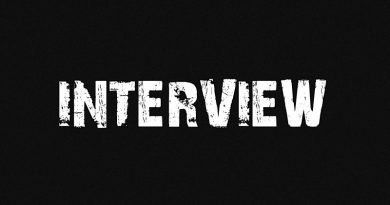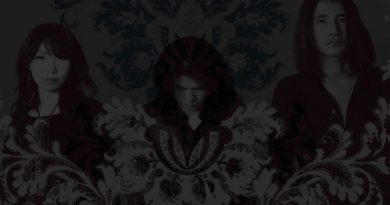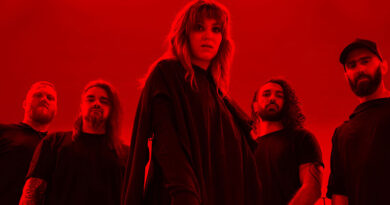In Search Of Tone: Mike D & Billy Of The Age Of Truth
‘If you’re gonna do it, you better take it to the stage, or don’t do it at all.’ Clutch says it best in Earth Rocker, but the guys in The Age Of Truth live by it. Mike DiDonato (guitar) and William Miller (aka Billy on bass) explain in the interview that they truly want to make the live experience as grand as their albums. It’s constantly in the back of their minds when writing and they put forth the effort to reproduce it live. After our chat it only makes me want to see them in a live setting that much more.
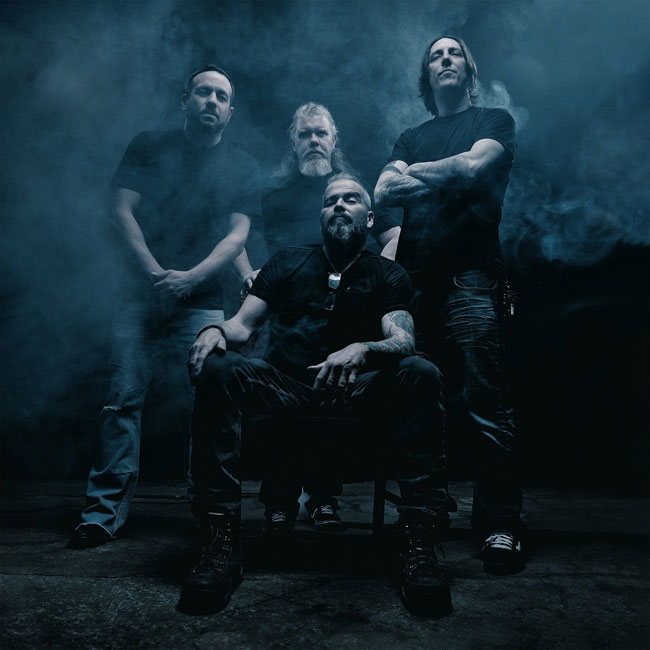
On top of that, they’re the nicest and most down-to-earth guys. They were hilarious and it wasn’t even like an interview. I had to piece together two hours of conversation about our mutual love of all things music. They are just as much fans of music as me, if not more, and it shows. So without further ado I give you…
*** tangent #1 where we just bullshit for twenty or so minutes before we discuss the epic Resolute. ***
What was the process of writing Resolute while dealing with quarantine?
Mike D: A lot of the material was already written prior to Covid, but it wasn’t perfected. The foundation was there and that’s normally how we operate anyway. Any idea that Billy or myself brings to the band we collaborate on and then at the end of the day it’s just a compromise. Resolute was written a while ago, in fact, the opening track Palace Of Rain, we were playing that song out for about two years at least. Then the pandemic comes along while we were recording in the studio.
The pandemic made us stop at a crucial moment and evaluate where the record was and gave us a chance to think if we’re really that happy with it…
We had tracked the drums and bass and a little bit of vocals. We got one day of guitar and the second day we were going in, they shut all of Philadelphia down. We were really disappointed but obviously, it was the necessary steps to take during that time. It was a blessing in disguise because it gave me a chance to really sit back and go over all my guitar parts. I knew I was up next, so I got to really dissect everything I was planning to record. That time gave me the freedom to dial in every guitar part on this album and I put a lot of time into it.
William aka Billy: It was really neat because we had the rough edits and when everything shut down, we had the time to listen to those. There was some material we weren’t crazy about, some of my best tracks, I decided to re-track because parts of them changed a little bit. It was about three months or so that we were just constantly listening to those rough edits. The pandemic made us stop at a crucial moment and evaluate where the record was and gave us a chance to think if we’re really that happy with it.
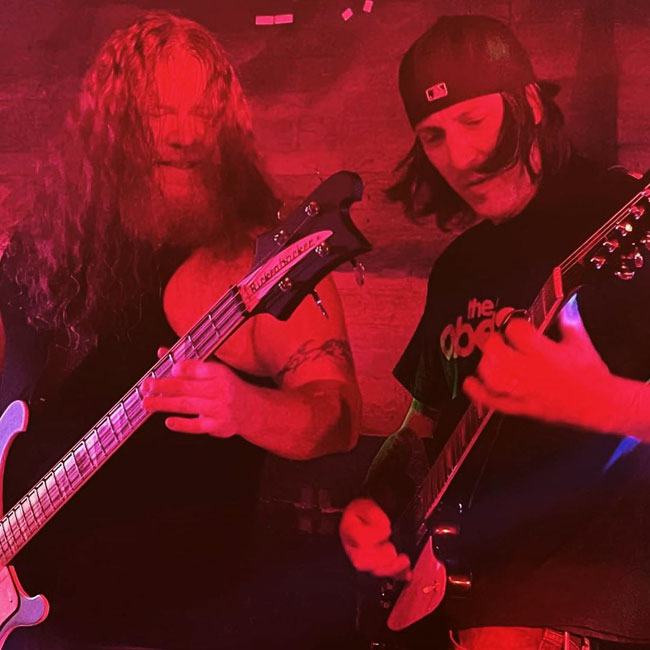
That makes sense. I bet it’s hard to take time and review what you’re doing when you’re feeling rushed to record?
Billy: With our first album, it’s a piece of art and with any piece of art you can always make it better until you’ve beaten it to death, and you actually made it worse trying to perfect it. The thing we always said is it’s a moment in time that we’re catching. It was the first record, we were really grinding it out while this one we actually spaced out with tracking over a couple of years, I love how it turned out so that worked for us but it wasn’t the cheapest way to do it [laughs].
Mike D: But I feel it was worth it. I don’t regret any of the processes of recording the second album. The steps we took and the people we gathered for our team. We have a lot of cool people pulling for us and we couldn’t be happier.
Billy: He might start tearing up [Laughs]. We recorded at Retro City Studios with Joe Boldizar and then we met Dave Klyman who actually works there. When we were writing songs Dave specifically requested to be in the studio, we didn’t know him, he just loves heavy music. That guy sprinkled jimmies all over the record, so much so we gave him a producer credit on the album, I mean his ideas were fantastic. Now, Mike hates everything new, like he really is that whole Mike on the cereal commercials [laughs], but Dave would have an idea and as soon as he said it, it was weird, it was like I can actually hear what he was talking about.
Mike D: Every time he suggested something, it was something I would’ve never even thought of, but I thought all right I’ll try it, and then I ended up loving it.
That guy [Dave Klyman] sprinkled jimmies all over the record, so much so we gave him a producer credit on the album, I mean his ideas were fantastic…
Billy: [Laughs] Yeah Dave was great, Joe was also great and then we ended up sending it up to Brooklyn to get it mixed by Andrew Schneider. This is a pretty cool story, we’re friends with Keith Gibbs from Sasquatch and I was talking to him one day and I said I love their album Maneuvers. I think it’s such a phenomenal album and I said to him this is the best record you’ve done since II. He said funny you mention that the guy who mixed II mixed Maneuvers. So of course, I grab my pen and paper and asked who it was, and he said Andrew Schneider. We sent him the record and he did an amazing job.
Scott [Frassetto – drums] asked if we could send it to be mastered by the guy who mastered some Hum albums. His name is Ryan Smith. We sent one song to him and sent one song to the guy who mastered our first album. We did an A/B test and what Ryan Smith did was phenomenal. It wasn’t cheap, but it was worth it and the only way I can describe mastering an album would be like the glaze on a doughnut. If it really is done right, it can make the album that much better.
We gathered a great team to make this album and that’s important even down to the layout which was done by Shane K. Gardner of Rock N Roll Socialite and Alan Baltimore, a photographer who took shots of us at Maryland Doomfest, he does a phenomenal job. JJ Koczan of The Obelisk helped with the release of the album, even Dave of MIBK Silk Screeners, absolutely everybody should call him up, he should be a billionaire [laughs], I love that dude. I’ve been in a band for about six years, and we hammered out a killer team and that’s essential for the creation of Resolute.
*** If you have read past interviews, you know by now I can’t stick to a script. Tangent #2 begins now where I show off some gear ***
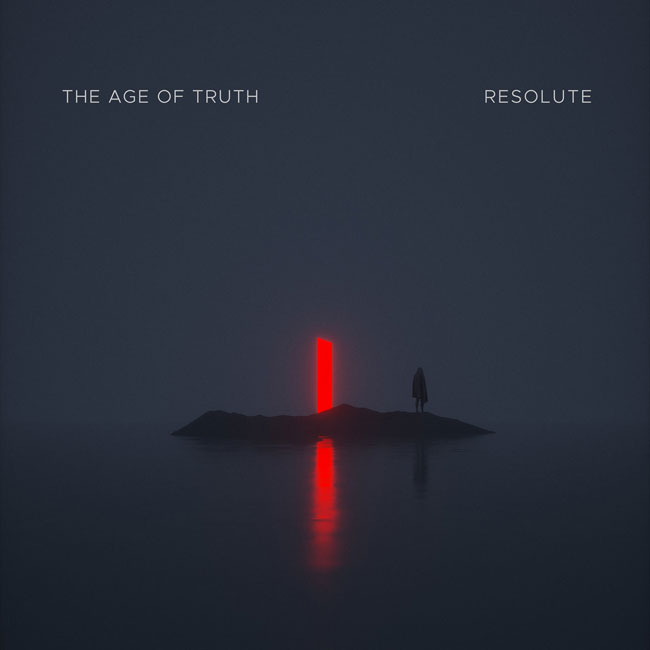
This is my wife’s bass guitar, she is just getting into it now but sings and plays piano. When she plays a riff on bass all I can come up with is playing the same riff over what she’s playing, or it just doesn’t sound right. How do you guys create riffs that complement each other?
Mike D: With our band being a four piece, with a standalone singer, I’m the only guitar player. A lot of the riffs we come up with, Billy and I are just doubling each other.
Billy: Yes, sometimes and definitely at the beginning of the songs.
Mike D: It’s basically the same riff, but Billy is playing the lower end to give it that extra heaviness.
Billy: Mike and I get together, probably more than anyone else, and we send a lot of riffs back and forth over the phone. That’s the very beginning. I’ll send him something and if I don’t hear anything, I’ll know he hates it [Laughs]. But then I’ll send something, and he’ll immediately respond saying ‘that’s the shit’ and I’ll know we got something [laughs]. It goes the other way too; he’ll send me something and I’ll go ‘delete’ [laughs]. What’s cool about how we write, none of our songs are just one person. One song was written by one person and that was just a guitar interlude on Threshold, other than that we each put our touch on the song.
What’s cool about how we write, none of our songs are just one person…
Mike D: And Seven Words.
Billy: Well yeah, I didn’t touch on that, it’s acoustic [laughs], I gave my moral support. Mike and I have been playing together since we were 18 years old. There was a time where we didn’t play together, but we found our way back together. That needs to be said because we’re at a point now where we can just finish each other songs or riffs. We listen to each other play and will say stop that, cut that in half, and just play the first part. That’s basically how it works, and we put it all together into a The Age Of Truth song.
Mike D: Scotty plays a huge part in that too; he can orchestrate a song very well, his knowledge of music, especially being a major part of a rhythm section as the drummer is vast, he’ll say we have to get this down to 7 and 4/4, or whatever, I don’t speak drummer language [laughs].
If you take the song Salome for example, on the new album, I stood in front of him running through chords and he’s like ‘OK play that two more times, play that three more times’ and he orchestrated the whole song. We’re super lucky to have Kevin McNamara [vocals] and Scott Frassetto in this band because Scott played with Moby back in the day and that was when they opened for Soundgarden during their Superunknown days. Kevin has toured the world with The Black Crowes and was signed to Universal Warner Bros.
There’s amazing talent in the band and those guys don’t talk about it that much, which is really cool. I will get a story out of them once in a while, but they’re really down to earth and hold a lot of weight in this band.
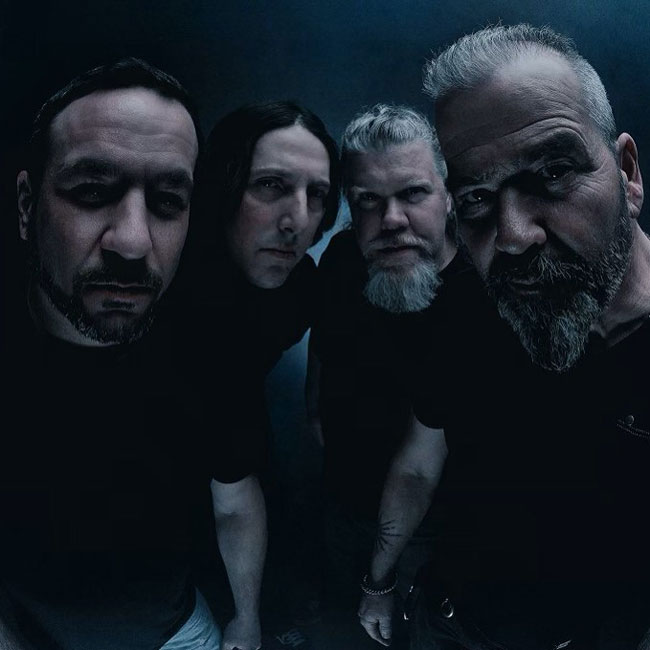
I didn’t know that, that’s really amazing! Speaking of talent (or lack of), I’m a beginner guitarist and feel I’m on that line to cross into intermediate status. It’s a hard line to cross and I was curious what you guys did to feel more confident in your playing?
Mike D: What I would suggest is to use the internet, I didn’t have this luxury when I was learning because I’m 48. I used to put cassettes in, listen and try and tune up, rewind, and learn the songs. I was constantly listening and rewinding these cassettes. I would really encourage people to use the Internet [laughs]. For example, say I want to get better at pentatonic or a mixolydian scale. Then just go on YouTube and type it in and literally sit there and have a lesson right on your laptop or phone.
Also, close in on what you want to improve on. For me, I am a big blues guy and Jimi Hendrix is my all-time greatest guitar player. After that, I was listening to really obscure blues guitarists that played more for feel, instead of how many notes you can jam into a lead. Listen to the music that you’re into and you should gravitate towards that style of playing.
For us it’s all pentatonic scales that were playing. I like to listen to Eric Clapton, Stevie Ray Vaughan, Jimmy Page, Jimi Hendrix, I can go on forever. The scales that they gravitate towards are pentatonic, but then they dip into a jazz side of guitar playing where you can slide up half steps here and there among other techniques.
Just to simplify it, for anybody on a string instrument, the pentatonic scale can teach you a lot. For example, leading a chord into another chord or bridging the gap between chords, even just playing the scale and knowing where the notes are on the entire fretboard.
Billy: Play with a bunch of people.
Mike D: Yes! I grew up playing guitar with anybody that would play. It doesn’t matter if they play bluegrass or whatever, you can always learn something from somebody. Most importantly, and I tell you this all the time Billy [laughs], don’t just play a song you know, push yourself, play a scale, warm your hands up for fifteen minutes and then get creative.
This band has a lot to do with Greenleaf, specifically Trails And Passes…
Yeah, that’s what I do quite often, just play what I already know.
*** Tangent #3 where William offers up some great advice about attending open mic nights that leads into a long discussion of our mutual love of Corrosion of Conformity somehow ***
Mike D: That’s a cool signed album by Corrosion of Conformity and a nice Fender shirt you got there too. Fender was the first guitar I played, well a Fender Squier Stratocaster.
Billy: And he’s never going to play another one. There will be five Fender guitars and five Gibson guitars in a room and I’ll say, ‘Hey Mike, how many guitars are in this room?’, he’ll reply ‘There’s five of them!’ [laughs], it’s like he doesn’t even see Fender guitars anymore.
Mike D: I appreciate old Fenders. I like vintage Telecasters. Sorry, we keep talking and messing up your plans.
Josh: No, you’re not! Actually, it’s the perfect transition into my next question. So thank you. What guitars and bass guitars are you using?
Mike D: Just the Gibson Firebird from 2018 and that’s my second one.
Billy: The same exact one. He’s the only dude that buys the exact same guitar [laughs].
Mike D: Yes [laughs], to be honest when this band started, I was listening to a lot of Greenleaf and Tommi Holappa, I’m saying, that fucking white Firebird man! [laughs]. I was on a mission, and I wanted a black one. This band has a lot to do with Greenleaf, specifically Trails And Passes.
Billy: This band wouldn’t exist without Greenleaf.
*** Tangent #4 discussing our mutual love of Greenleaf ***
Billy: He’s asking about gear, answer his gear question [laughs].
Mike D: The Gibson Firebird, it’s a reliable guitar, it stays in tune, and if I take my hands off, it stays right where it is unlike the SG I used to play where when I would take my hands off the neck, and it sinks down because it’s so heavy. On Resolute it was specifically my 2018 Gibson Firebird and for acoustic my Martin D41.
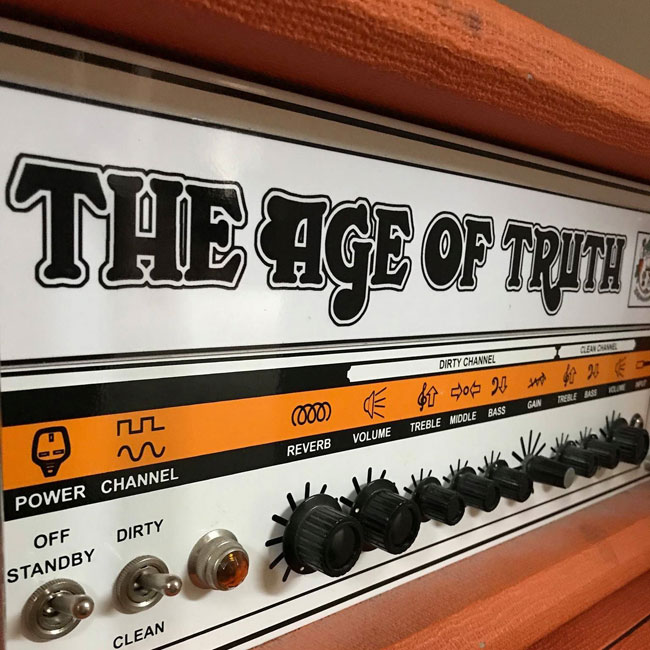
What about amps?
Billy: There you go Mike, start your commercial now [laughs].
Josh: [laughs] Yes! I’ve heard you’ve got your gear really dialed in so I’m excited to hear what you use.
Mike D: I use an Orange Rockerverb 100, they’re the best amps you can ever plug into and I’m not kidding. I’ve played many different amps over the years and the Rockerverb 100 is by far the greatest. In the studio, I also use a Marshall JCM 800 and the standard 4 x 12 cab just for voicing, a little panning, some slight differences. I did use a Fender Twin for the reverb.
Billy: Which he hated but I loved.
I use an Orange Rockerverb 100, they’re the best amps you can ever plug into and I’m not kidding…
Mike D: Yeah, it was great for adding some layers, but if you’re going to ask me which amp you should buy its Orange all day long. For me personally, it’s the Rockerverb 100 and it doesn’t even matter which cabinet you have but, I have the black cabinet with Celestion 30s. I have a 2 x 12 cabinet with stock speakers also but plugging into that amp….
Billy: ….makes him happy [laughs].
Mike D: It’s magical. It has the tone I’m looking for. Everyone has different tastes but for me, the sun rises and sets with Orange Amplifiers.
Billy: No one cares about the bassist’s gear, but I’ll tell you anyway [laughs]. I have a 1971 Ampeg SVT. It sounds great and electrocuted me twice. It’s been a great amp otherwise and sounds fantastic.
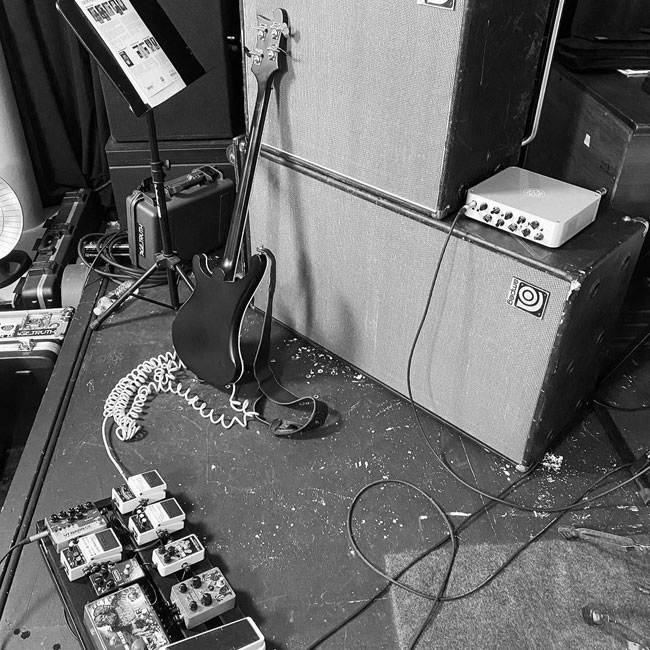
We care! [laughs] Last but not least are the pedalboards. What is currently on both of yours?
Mike D: Mine is pretty modest surprisingly.
Billy: [eye roll] Modest… [laughs]. His board is ‘Ohhh, fancy pedal here, this one sounds like the opera, ooooh this one sounds like morse code, he has all this fancy stuff.’ Mine is Fuzz, Fuzz, Fuzz, wah-wah.
Mike D: [Laughs] I don’t use any fuzz pedals. I use a wah-wah, tuner, Earthquaker Devices Dispatch Master for the delay, and an Oceans 11 pedal by EHX. It adds a synthesizer effect which has been great for live use too. I also use a Noise Decimator by ISP Technologies. I also use a boost pedal which is probably the most important pedal on my board because…
Billy: …he wants to be louder; ‘More Me’ [laughs].
Mike D: No [laughs] not at all. Spoken like a true bass player [laughs], but seriously, it really helps me with dynamics and it’s a very important part of my board. It’s the Pigtronix Class A Boost pedal. It also plays a role because being a power trio with a standalone singer, I don’t have another guitarist to double what I’m doing in the chorus or whatever. For writing a lot of thought goes into ‘we can’t do that because we can’t recreate that live’. We pride ourselves on putting out music that can be recreated live.
I have a Fuzzrocious Grey Stache, Big Muff, Black Arts Toneworks Pharaoh, and Mark from StoneFly Effects is a buddy of ours and he made me a Double Headed Werewolf…
Billy: We give each other shit, but it really sounds great and the dynamics, especially live, are important and he does a great job. For me, I have the Boss LS-2 and that’s the most important pedal on my board because I can now use any fuzz, even when it squashes out my low end. By running it through the line selector, the signal gets put back in and the low end is still there. It changed my life when I read about it and at first I thought it was stupid but I’m glad I tried it because it’s amazing.
For fuzz I have a Fuzzrocious Grey Stache, Big Muff, Black Arts Toneworks Pharaoh, and Mark from StoneFly Effects is a buddy of ours and he made me a Double Headed Werewolf. It’s huge and it’s perfect. It can give me a rhythm guitar sound that I can play while Mike takes the lead.
*** We finished off the interview with the last thirty min tangent. These two guys are easy to talk to and a lot of fun. It’s easy to see how they put out such an epic album because they share a love of music and truly have fun with what they are doing. Thanks for the chat guys. ***
The Age Of Truth‘s current album, the critically acclaimed Resolute is out now and can be purchased on vinyl, compact disc, and digital download over on Bandcamp.
Label: Contessa Music
Band Links: Official | Facebook | Bandcamp | Twitter | Instagram
Scribed by: Josh Schneider

